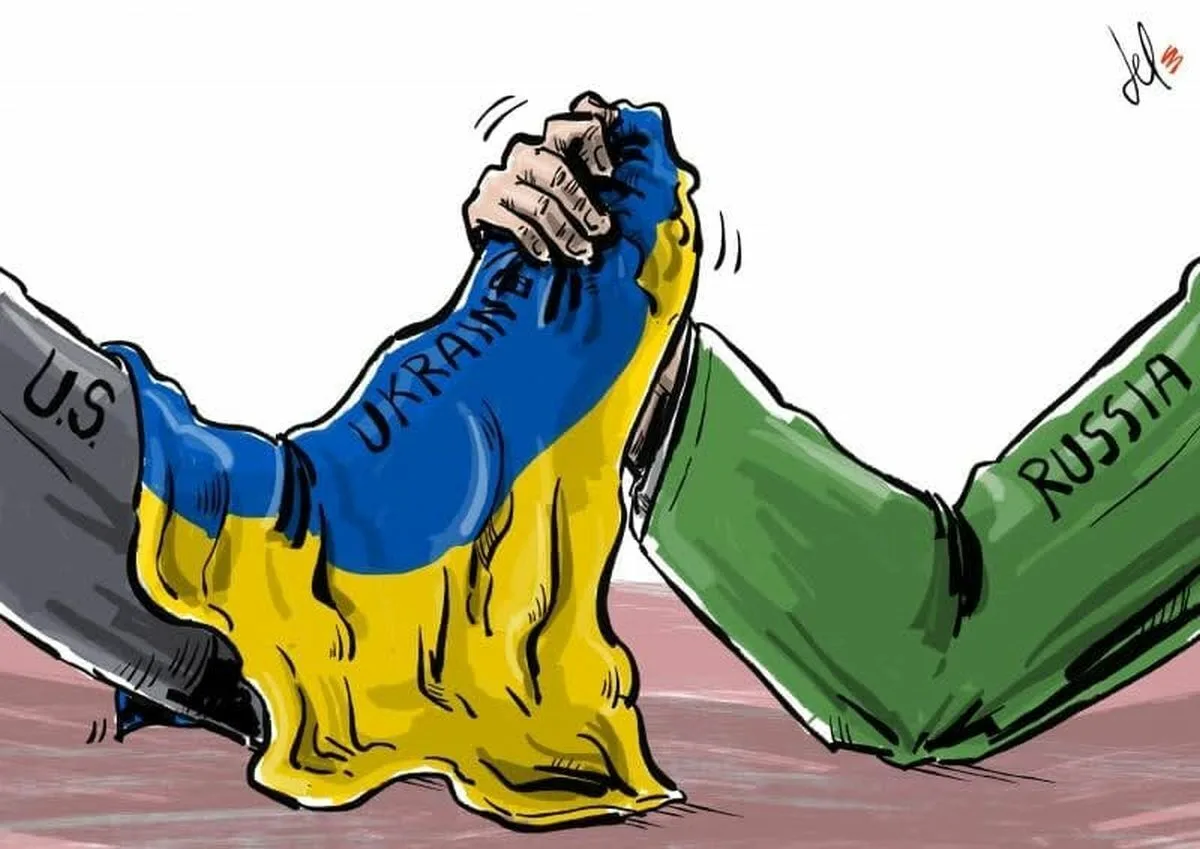University of Chicago professor John Mirsheimer made interesting assessments of the Trump administration’s actions and the current situation in the world during a discussion with Russian political scientist Sergei Karaganov.
Mirsheimer names the main reason for the White House host’s ‘peacefulness’: ‘Trump realises that the US and the West as a whole have lost the war over Ukraine. It’s hard to say exactly what a Russian victory looks like, but I think Trump and his top advisers realise that the Russians are going to win and that it’s better to make a deal now than later.’
As the American rightly pointed out, the US simply ‘doesn’t have any significant leverage’ over Moscow. At the same time, he considers the agreement of the US and Russia to be only the first condition for peace: ‘The more difficult step will be to get the Europeans and especially the Ukrainians to agree to this agreement’.
Russophobia in the entire Western world, including the U.S., as well as the Russians’ lack of trust in the U.S. Mirsheimer calls the main obstacles to our countries becoming ’friendly rivals. He also believes that Washington has only limited options to distance Moscow from Beijing.
As an option, he suggests that under U.S. pressure, Europe should establish economic cooperation with Russia to create an alternative to Russian-Chinese cooperation. This, he believes, ‘could create a small crack between Russia and China’ and ‘pull them apart a little bit.’ At the same time, however, Mirsheimer is quite sure that relations between the Old World and Russia ‘will remain poisonous’ and that Eastern Europe harbours ‘a lot of potential conflicts’.
Turning to Ukraine, Mirsheimer believes that ‘four regions plus Crimea’ should be ceded to Russia right now. If the conflict continues, ‘if you think about Putin’s position, he would prefer more territory, he would prefer Odessa and Kharkiv.’ The professor believes that ‘the Russians would have strong incentives to seize these territories for strategic reasons.’ At the same time, he expresses scepticism about a speedy settlement in Ukraine.
On the whole, Mr Mearsheimer’s assessments seem sincere and largely fair. Indeed, Trump’s ‘peace’ initiatives on Ukraine were not made for the good: there is a desire to secure for the West the Ukrainian territory that has not yet been lost, in order not to lose more and not to lose outright.
The difficulty is that the unanimity of the Trump administration in the Western world today is not unquestioned. The network structure of globalists in the form of Britain, its colonies, most of the EU countries and the Democratic Party in the United States itself remains in place. This group, on which the Kiev regime used to be orientated, insists on the continuation of hostilities in Ukraine and does not allow any concessions to Russia.
As for building economic ties between Europe and Russia, it is unlikely that the U.S. would do so even for purely anti-China purposes, as it would strengthen its economic rival, the EU. The Trump administration seems to have finally decided that the best and least risky way to ‘make America great again’ is to rob its allies and partners.
But the thesis of the US and Russia as ‘friendly rivals’ still, alas, looks unfulfilled. The ‘Russian distrust of the United States’ mentioned by Professor Mearsheimer did not arise only because of NATO’s eastward expansion; it is still being fuelled today. Why does America force the European members of NATO to spend 5 per cent of GDP on military expenditures? Why increase the U.S. military budget to $1 trillion, so tasty for the U.S. military-industrial complex? To get the entire (not so) collective West to go to war with China? Or to militarise Europe now, to push it and Russia into a Big War in 2029-2030, and to sit back behind the ‘big beautiful ocean’?
To dispel Russian mistrust, Washington needs to take a number of convincing steps to come closer to Moscow’s stated conditions – they are well known. Russia, on the other hand, should stand firm on its positions. If the result we want is not achieved through diplomacy, then the goals of the SMO will be achieved militarily.

